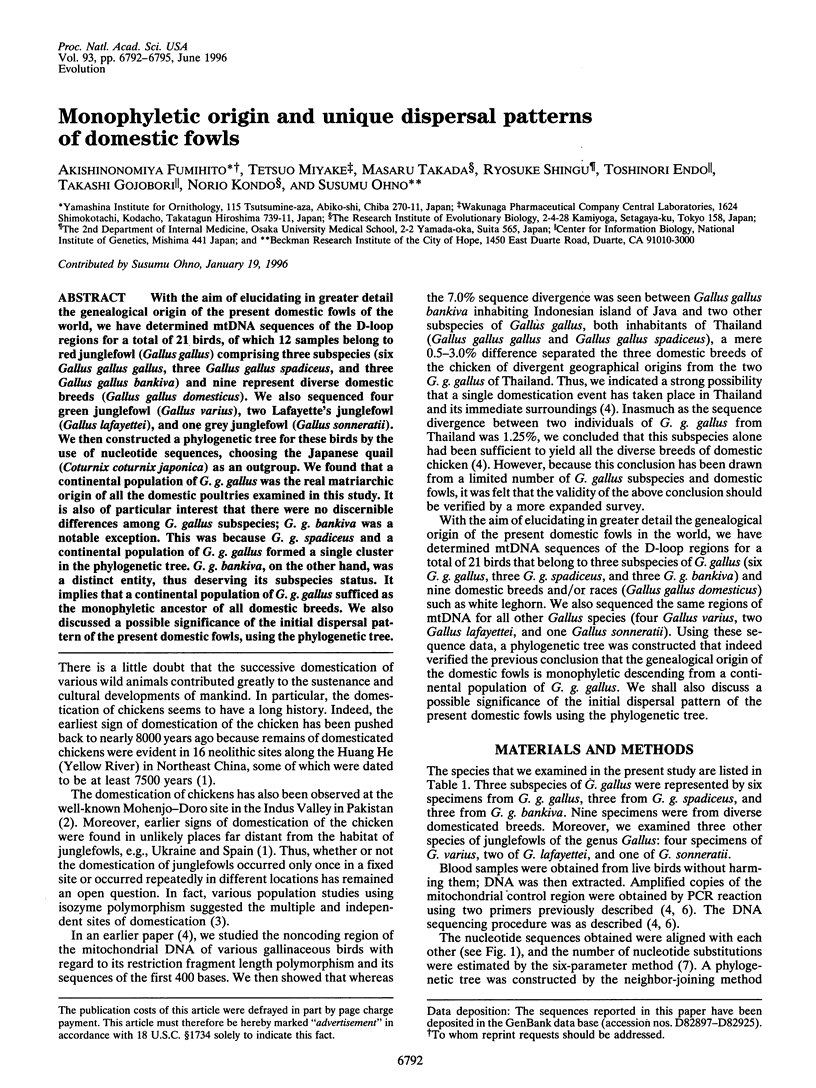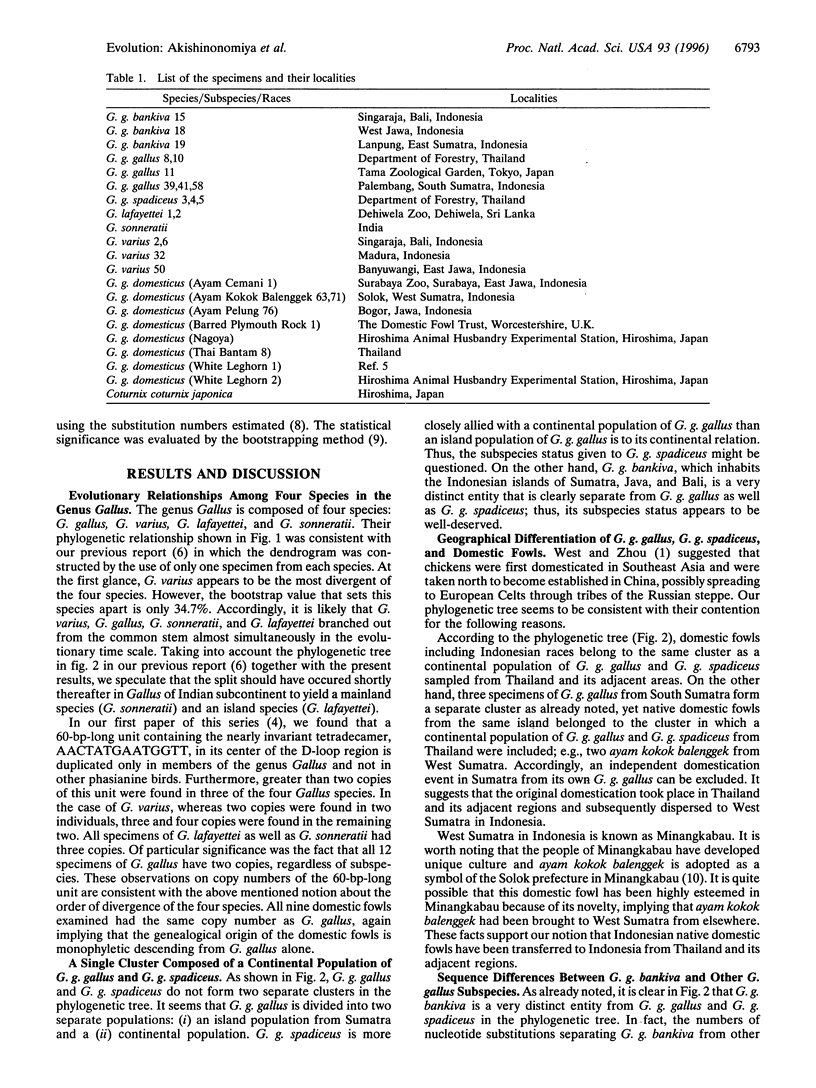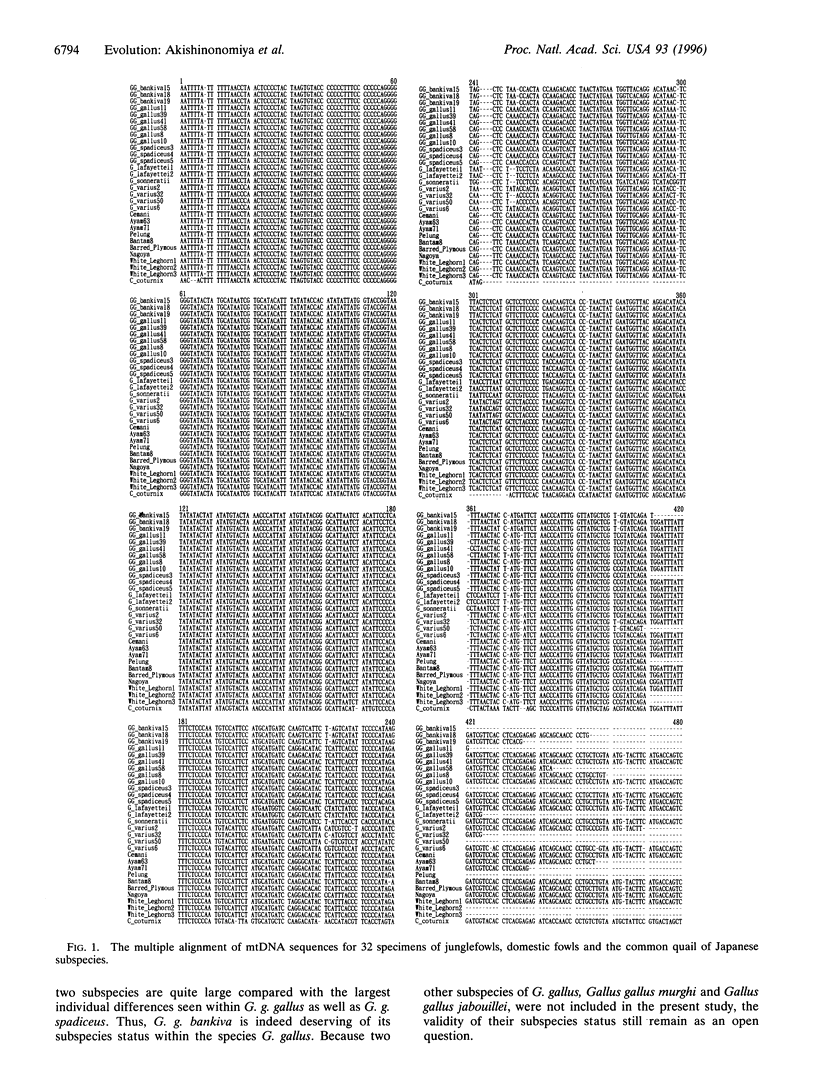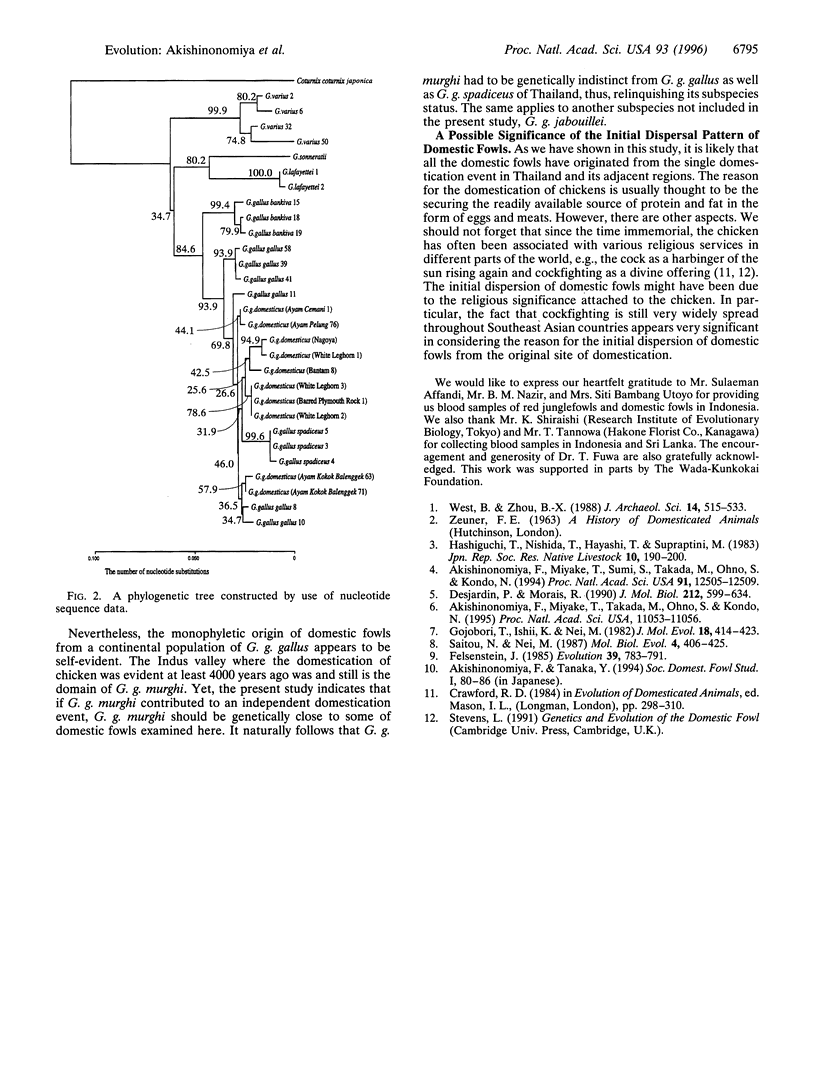Abstract
With the aim of elucidating in greater detail the genealogical origin of the present domestic fowls of the world, we have determined mtDNA sequences of the D-loop regions for a total of 21 birds, of which 12 samples belong to red junglefowl (Gallus gallus) comprising three subspecies (six Gallus gallus gallus, three Gallus gallus spadiceus, and three Gallus gallus bankiva) and nine represent diverse domestic breeds (Gallus gallus domesticus). We also sequenced four green junglefowl (Gallus varius), two Lafayette's junglefowl (Gallus lafayettei), and one grey junglefowl (Gallus sonneratii). We then constructed a phylogenetic tree for these birds by the use of nucleotide sequences, choosing the Japanese quail (Coturnix coturnix japonica) as an outgroup. We found that a continental population of G. g. gallus was the real matriarchic origin of all the domestic poultries examined in this study. It is also of particular interest that there were no discernible differences among G. gallus subspecies; G. g. bankiva was a notable exception. This was because G. g. spadiceus and a continental population of G. g. gallus formed a single cluster in the phylogenetic tree. G. g. bankiva, on the other hand, was a distinct entity, thus deserving its subspecies status. It implies that a continental population of G. g. gallus sufficed as the monophyletic ancestor of all domestic breeds. We also discussed a possible significance of the initial dispersal pattern of the present domestic fowls, using the phylogenetic tree.
Full text
PDF



Selected References
These references are in PubMed. This may not be the complete list of references from this article.
- Desjardins P., Morais R. Sequence and gene organization of the chicken mitochondrial genome. A novel gene order in higher vertebrates. J Mol Biol. 1990 Apr 20;212(4):599–634. doi: 10.1016/0022-2836(90)90225-B. [DOI] [PubMed] [Google Scholar]
- Fumihito A., Miyake T., Sumi S., Takada M., Ohno S., Kondo N. One subspecies of the red junglefowl (Gallus gallus gallus) suffices as the matriarchic ancestor of all domestic breeds. Proc Natl Acad Sci U S A. 1994 Dec 20;91(26):12505–12509. doi: 10.1073/pnas.91.26.12505. [DOI] [PMC free article] [PubMed] [Google Scholar]
- Fumihito A., Miyake T., Takada M., Ohno S., Kondo N. The genetic link between the Chinese bamboo partridge (Bambusicola thoracica) and the chicken and junglefowls of the genus Gallus. Proc Natl Acad Sci U S A. 1995 Nov 21;92(24):11053–11056. doi: 10.1073/pnas.92.24.11053. [DOI] [PMC free article] [PubMed] [Google Scholar]
- Gojobori T., Ishii K., Nei M. Estimation of average number of nucleotide substitutions when the rate of substitution varies with nucleotide. J Mol Evol. 1982;18(6):414–423. doi: 10.1007/BF01840889. [DOI] [PubMed] [Google Scholar]
- Saitou N., Nei M. The neighbor-joining method: a new method for reconstructing phylogenetic trees. Mol Biol Evol. 1987 Jul;4(4):406–425. doi: 10.1093/oxfordjournals.molbev.a040454. [DOI] [PubMed] [Google Scholar]


